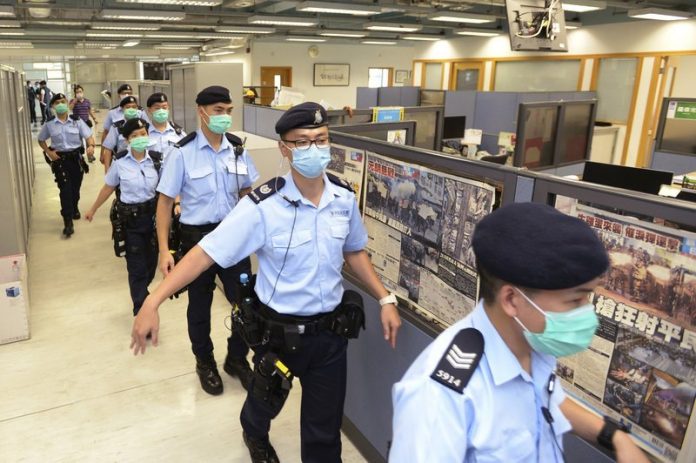Global Affairs Canada is warning dual Chinese-Canadian citizens to present themselves only as Canadians if they are questioned or detained by authorities in Hong Kong.
READ MORE: Canada updates travel advisory for Hong Kong after China enacts security law
“And local authorities may refuse to grant consular access to detained dual nationals who declare themselves as Chinese nationals, as China begins to enforce this law enacted in 1980 more broadly and rigorously,” the statement said.
According to Global Affairs Canada, Canadians who wish to receive consular services should “present themselves as Canadians to authorities at all times.”

Canada will ‘pursue every avenue’ to bring the ‘Two Michaels’ home, Trudeau says – Dec 18, 2020
The comments come after a National Post article suggested Hong Kong’s government has declared that dual citizens must choose the nationality they wish to remain legally, while in the territory.
Global News has reached out to Global Affairs Canada to determine how many Canadians are currently living in Hong Kong, but did not immediately hear back.
On top of a global travel advisory due to the COVID-19 pandemic, Travel Canada has for months been warning Canadians to “exercise a high degree of caution” in China, due to the “risk of arbitrary enforcement of local laws.”
READ MORE: Canada will not stop calling out China for ‘coercive diplomacy’: Trudeau
The warning came after a new National Security Law was implemented in June which has resulted in the arrest of 55 pro-democracy activists, as well as members of the media.
One lawyer has also been arrested under the law.
In a joint statement released after the arrests, then-Foreign Affairs Minister Francois-Philippe Champagne and his American, British and Australian counterparts expressed their “serious concern” about the arrests.
 Trudeau says Canada working ‘extremely hard’ to bring 2 Michaels home from China
Trudeau says Canada working ‘extremely hard’ to bring 2 Michaels home from ChinaTrudeau says Canada working ‘extremely hard’ to bring 2 Michaels home from China – Dec 11, 2020
The ministers said the National Security Law, which Chinese and Hong Kong authorities argue is necessary to maintain order in the city, is actually being used to crackdown on dissent and opposing political views.
“Police carry out random checks and failure to produce proper identification could potentially lead to fines or detention. Keep a photocopy of your passport in case of its loss or seizure,” the website reads.
–With files from The Canadian Press











